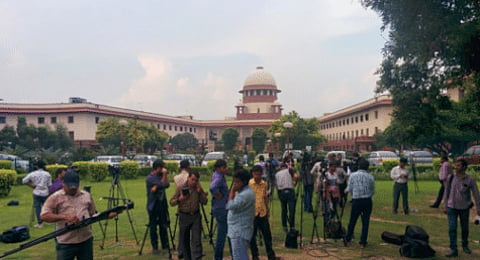
- News
- Columns
- Interviews
- Law Firms
- Apprentice Lawyer
- Legal Jobs
- हिंदी
- ಕನ್ನಡ

The Supreme Court yesterday gave the benefit of age relaxation rules to a woman police officer and directed the Chhattisgarh government to appoint her Deputy Superintendent of Police.